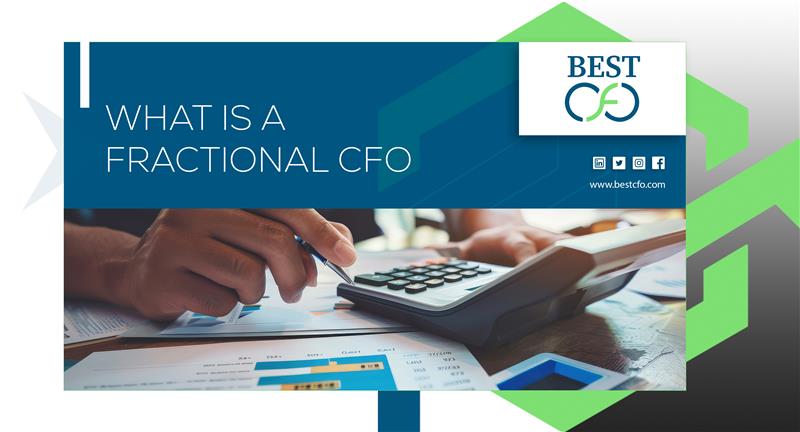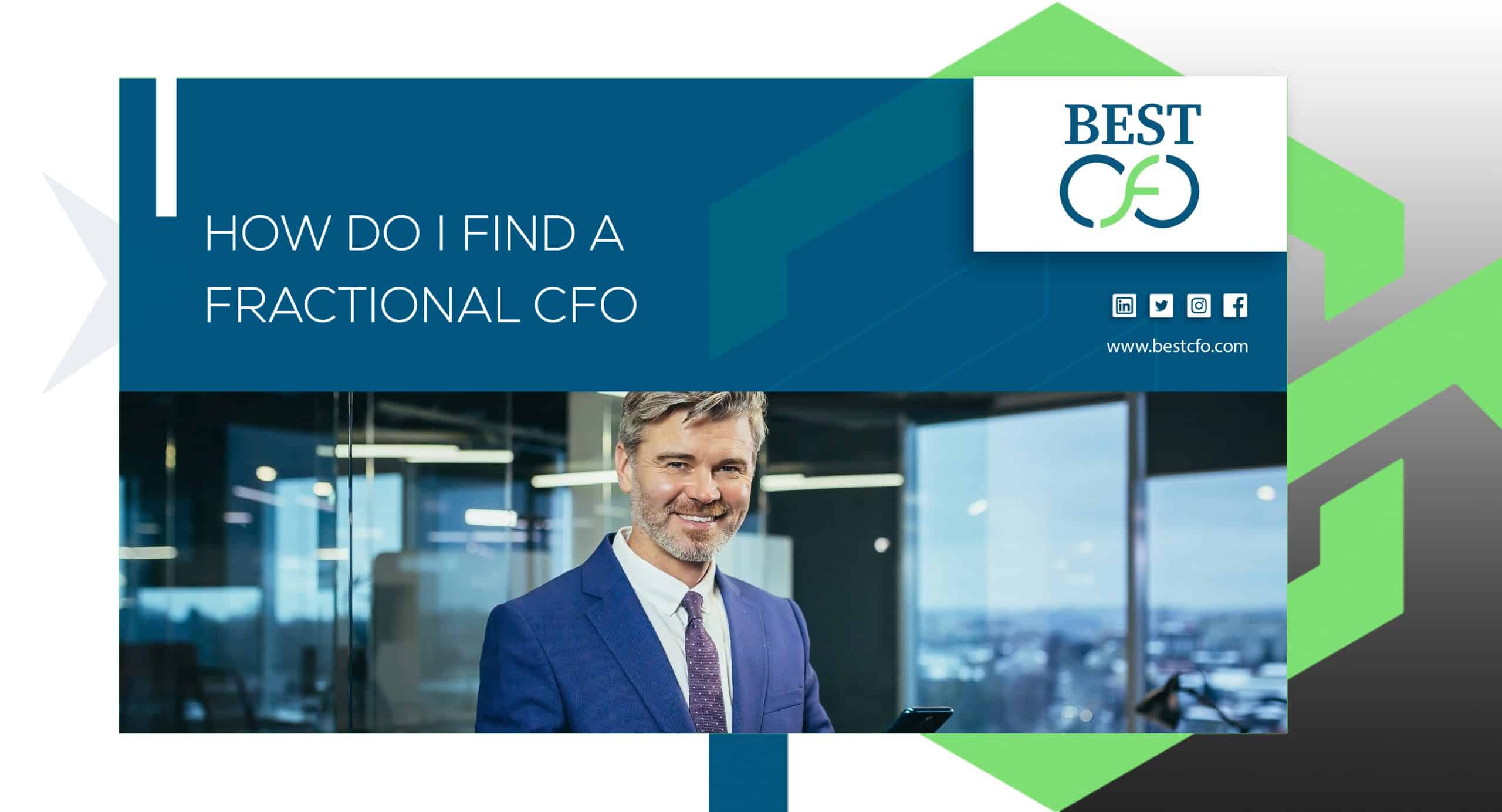
What is a Fractional CFO? The Flexible Financial Leadership Solution for Businesses
Businesses are facing various financial challenges today, from cash flow to dealing with market changes. However, not every company or business can afford to hire an in-house CFO. Here, a fractional CFO does the trick with cost-effective and reliable solutions.
So, what's exactly a Fractional CFO? Let's discuss!
What is a Fractional CFO?
A Fractional CFO would be a part-time or project-based CFO. A full-time CFO would be heavily involved with regular, daily business activities; he would be a professional financial service provider with no long-term commitment.
The fractional CFO represents dependable financial services that possess both flexibility and scalability. These experts frequently oversee essential financial responsibilities, including managing cash flow, devising long-term financial strategies, and executing their tasks with greater efficiency.
Why Hire a Fractional CFO?
Many organizations think about hiring a fractional CFO for vital reasons, especially when they are facing tough financial conditions. Here are some important reasons to hire a fractional CFO:
Cost-Efficiency
The top benefit of hiring a Fractional CFO is their cost-effectiveness. An in-house CFO hiring can be costly, which may be tough for small and mid-sized companies. With a Fractional CFO, your business gets the same financial services without paying more.
Flexibility
Another benefit is flexibility. Fractional CFOs work according to desired business requirements. You can hire them part-time for precise or specific projects like fundraising or finance. This means you only pay for the help you need.
Specialized Skills
A Fractional CFO can also offer special skills that your current team might not have. They can provide valuable insights into financial methods, risk management, and possibilities. This is especially helpful during expansion times, business acquisitions, or market changes.
Support for Various U.S. Businesses
Fractional CFO services help many tech startups, growing companies in the United States, manage the financial constraints. Companies use Fractional CFOs regardless of whether their firm is going to be ready for an IPO, saves money, or wants highly developed financial planning.
Fractional CFO vs. Full-Time CFO: Key Differences!
When selecting between a Fractional CFO and a full-time CFO, you have to think about your financial requirements, budget, and long-term goals. Both roles are vital for financial leadership, but they perform in a different way.
Let's check:
Cost Comparison
The biggest difference is the cost! Hiring a full-time CFO in the United States can be very expensive, considering that it costs between $150,000 and $400,000 every year, depending on the size and location of the company.
This figure includes a big salary plus bonuses and other benefits. For many small to mid-sized businesses, such expenses may be too steep.
A Fractional CFO, however, is still the best option for such companies. These services mostly run between $100 to $300 an hour or between $2,000 and $10,000 per month.
This creates a very flexible solution for businesses and keeps them paying only for the hours or services they need.
Flexibility and Engagement
A Fractional CFO provides more flexibility than an in-house full-time CFO. Businesses can hire a Fractional CFO for a variety of financial activities, including but not limited to fundraising, mergers, market growth, and more. On the contrary, a full-time CFO is involved in normal operations and provides regular oversight.
Focus on Strategy vs. Operations
A full-time CFO normally manages daily operations, oversees the finance team, and handles routine tasks. On the other hand, a Fractional CFO regularly specializes in high-level strategy, financial forecasting, growth planning, and risk control. They bring valuable insights that can take the business to the next level (expected level).
Depth of Involvement
While a full-time CFO is deeply embedded in a company's culture and decision-making, a Fractional CFO generally works part-time. Their fresh perspective can uncover financial challenges and possibilities that an in-house CFO may miss.

When Your Business Should Hire a Fractional CFO:
Scenario | Description | Benefits |
|---|---|---|
Rapid Growth or Scaling | Your business is expanding quickly. They require expert financial guidance to manage cash flow and optimize operations. | - Strategic financial planning
|
Fundraising and Investor Relations | You are preparing for funding or need to manage relationships with investors. This can be complex and time-consuming. | - Help with financial projections
|
Mergers, Acquisitions, or Exits | Your business is involved in significant transitions, such as mergers or acquisitions. These things require careful financial navigation. | - Expert valuation and financial reporting
|
Financial Turnaround or Crisis Management | Your business is facing financial difficulties like declining profits or cash flow issues. | - Quick assessment of financial health
|
Project-Based Financial Needs | You have specific projects that require financial leadership. This may include launching a new product or entering a new market. | - Expertise tailored to the project's duration
|
Key Takeaways!
A Fractional CFO provides essential knowledge during important financial conditions. By offering strategic and custom financial solutions without the high cost of a full-time CFO, a Fractional CFO becomes a valuable asset for any enterprise.
If you’re considering how a Fractional CFO may want to enhance your company's strategy, contact the Best CFO, a top CFO in New York. Their team is prepared to provide the financial services that your business may require.
Related Posts
How do I find a Fractional CFO
How do I find a Fractional CFO for Startups? Top fractional CFO services A fractional…
How to Choose a CPA
The 5 Best Practices for Cashflow Management A robust cash flow management is important for…
CFO vs CPA
Understanding the CFO (Chief Financial Officer) Responsibilities The job of a chief financial officer is…
Understanding the CFO Responsibilities
Understanding the CFO (Chief Financial Officer) Responsibilities The job of a chief financial officer is…
 Demos
Demos  Colors
Colors  Docs
Docs  Support
Support 














